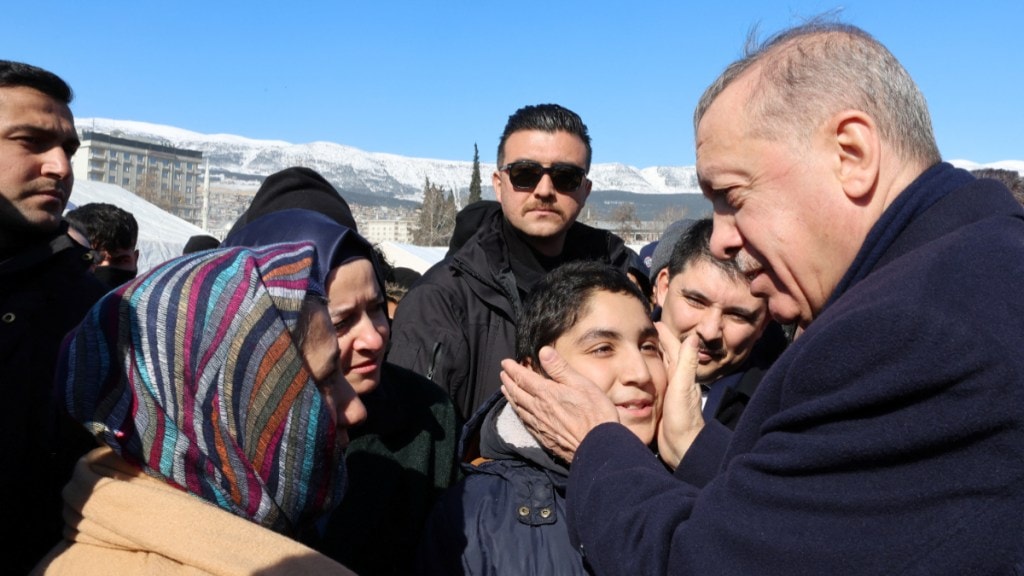Turkish President Recep Tayyip Erdogan Erdogan, who has dominated Turkish politics for 20 years, will now serve another five-year term. He secured five more years as leader of a country at the crossroads of Europe and Asia that plays a key role in NATO.
His defeated opponent Kemal Kilicdaroglu who had sought to reverse Erdogan’s policies and leanings, promising to return to democratic norms, adopt more conventional economic policies and improve ties with the West.
However, voters chose Erdogan whom they see as a strong and proven leader. In a closely fought election, Erdogan secured more than 52% of the vote in Sunday’s presidential runoff, two weeks after he fell short of scoring an outright victory in the first round.
Having received the mandate, Erdogan thanked the nation for entrusting him with the presidency again in two speeches he delivered in Istanbul and Ankara.
“The only winner today is Turkey,” Erdogan said outside the presidential palace in Ankara, promising to work hard for Turkey’s second century, which he called the “Turkish century.”
Erdogan’s unconventional ways have also achieved some global recognition like mitigating the global food crisis. His role is still vital to the continuity of a deal to allow Ukrainian grain shipments and avert a global food crisis.
Leaders across the world sent their congratulations, highlighting Turkey’s, and Erdogan’s, enlarged role in global politics.
Economic crisis
President Erdogan is facing severe inflation which has sparked a cost-of-living crisis. He has to address such economic challenges immediately.
Besides, he is to rebuild the infrastructure in the aftermath of a devastating earthquake that killed more than 50,000 people.
In his victory remarks, Erdogan said rebuilding the quake-struck cities would be his priority.
“Our hearts and hands will continue to be on the earthquake region,” he said.
Acknowledging the rising inflation and looming economic crisis, Erdogan said that the most urgent issue in the country is currently inflation, adding that it is not difficult to solve the problem.
According to the Turkish Inflation Research Group (ENAG), Turkey recorded a 105.19% price increase last month on the previous year.
“The most urgent issue of the coming days is to eliminate the problems arising from the price increases caused by inflation and to compensate for welfare losses,” the president said.
Further, the devaluation of the Turkish Lira has caused severe economic problems. As the US credit rating agency Fitch Ratings points out Turkey’s dwindling foreign reserves.
Turkey has also tried to stabilize the falling Lira by infusing massive capital. As reports suggest, the Turkish central bank has pumped in more than $ 177 billion in an attempt to stabilize the Lira since December 2021.
Turkey and NATO
With the new mandate, Erdogan is expected to lead and play a crucial role with fellow NATO members over the future of the alliance and the war in Ukraine.
Most imminently, Turkey holds the cards for Sweden’s hopes to join NATO. The bid aims to strengthen the military alliance against Russia. Turkey is also central to the continuity of a deal to allow Ukrainian grain shipments and avert a global food crisis.
He also said a million Syrian refugees would go back to Turkish-controlled “safe zones” in Syria as part of a resettlement project being run with Qatar.
Erdogan has retained the backing of conservative voters who remain devoted to him for lifting Islam’s profile in Turkey, which was founded on secular principles, and raising the country’s influence in international politics.
In fact, even his opponent Kilicdaroglu had pledged to send back refugees and ruled out peace negotiations with Kurdish militants if elected.
Erdogan transformed the presidency from a largely ceremonial role to a more functional and powerful office through a narrowly won 2017 referendum that scrapped Turkey’s parliamentary system of governance. He was the first directly elected president in 2014, winning the 2018 election that ushered in the executive presidency.
Erdogan is now serving his second term as president under the executive presidency. The first half of Erdogan’s tenure included reforms allowing the country to begin talks to join the European Union and economic growth that lifted many out of poverty.

